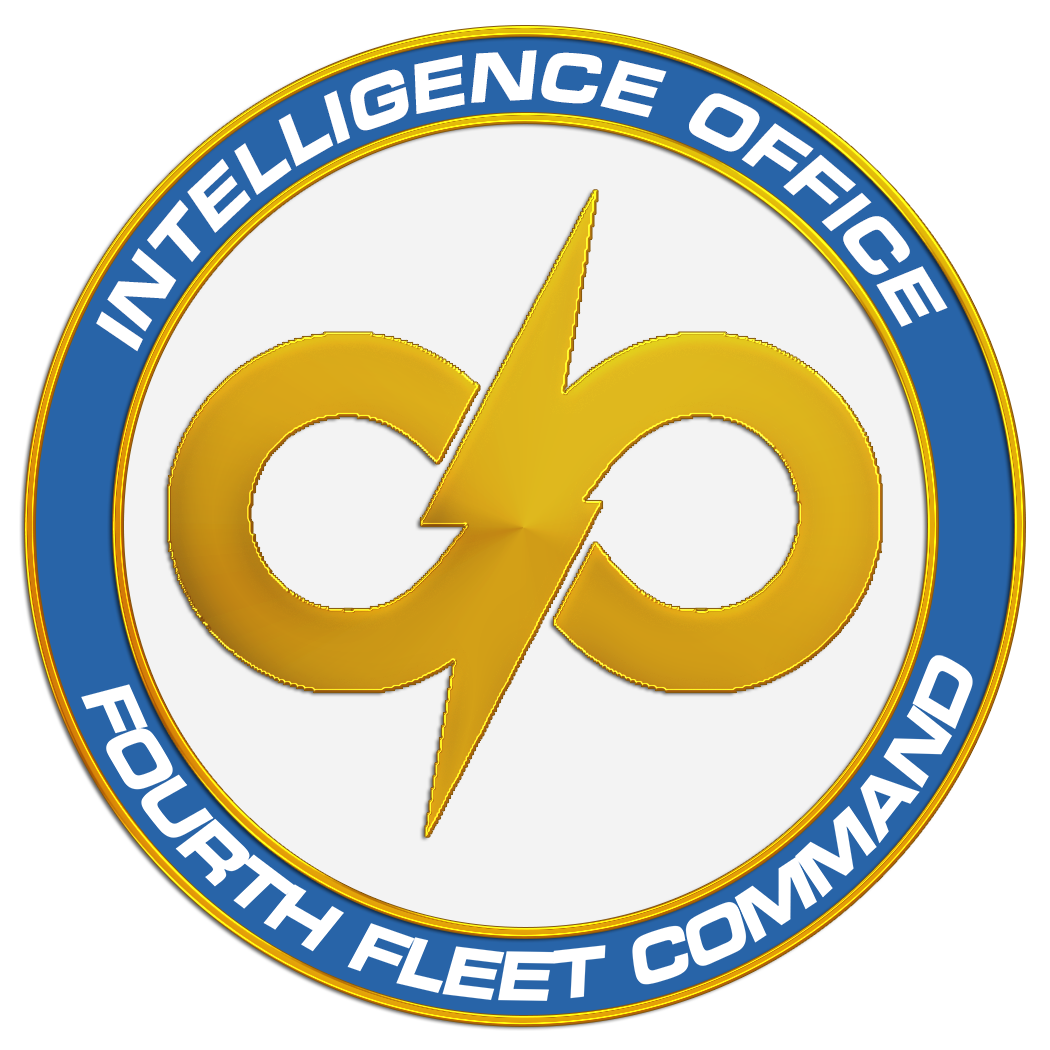As announced, on May 5th 2023, our next Fleet Action begins. I’m not about to give you more story information than we’ve already given, but I do have important news from the Intel Office about what that Fleet Action will look like from a storytelling perspective.
BF writers have been accustomed in past FAs and campaigns to being given a large briefing of the situation facing the Fourth Fleet. It has been accompanied by wiki pages giving more detail, and some generic story prompts. With all this information, writers have been encouraged to develop their own ideas that fit in this framework, fleshing out the detail on the ground. We’ll still be doing that for the next FA, but we’re also introducing something new: Unique, optional mission briefings.
These are mission premises cleared by the Intel Office and describe unique situations within the FA’s scenario. They identify specific locations, specific challenges, and outline what mission objective needs to be accomplished. They also, if applicable, will have wiki pages giving more detail on relevant locations or individuals. In most cases, they don’t specify how the mission should be accomplished, or what the outcome needs to be, but often include some suggestions or considerations.
They will be released alongside the usual main briefing. From there, members will have a chance (on a first-come, first-served basis) to volunteer their command or squadron for a mission, which they will then focus on in their storytelling throughout the Fleet Action.
You’ll be free to ignore these – free to come up with your own concepts from the whole cloth. So what’s the point of them? A few things:
- They get a lot of the initial work done for you. Rather than starting with the generic prompt of ‘break a Romulan Star Navy blockade on a former member world’ (to draw an example from Sundered Wings), you get more information like what the world is and what the stakes are. There’s still plenty of room for you to add detail of your own, but you know where you stand from the beginning.
- They help the Intel Office convey tone and setting details of the FA’s scenario. Different missions will approach different story threads or factors in the scenario. By taking on a mission briefing, you’re helping the FA tell a specific, consistent story.
- Mission briefings are usually about key, important events in the scenario. In Character, these are the big ones – the ones that turn tides or uncover new information. Many members can say their mission is hugely important to the FA. Those taking on a mission briefing have the Intel Office’s say-so that their story matters.
I’m also hoping to use these missions to expand beyond the weekly reports. Details haven’t been finalised, and don’t hold me to these promises yet, but in the works is a system where members will be able to self-report their story’s progress at the end of each of the FA’s three phases. I intend to use that information to do something cool, to really help make this Fleet Action a dynamic story – to make it clear that your stories are having an impact. Stories written from these mission briefings are thus more likely to have a tangible impact.
Members writing in the next Fleet Action are going to have four options:
- Key Missions. These are as described above, and are intended to have the scope to keep a writer busy across the FA’s six weeks. They’ll include wiki pages for setting material if needed. Take these on if you want to be a part of the briefing system, but still have freedom to flesh out details and direction. These will be the most numerous and typical of what the IO offers.
- Special Assignments. These are ideal for writers expecting to write between 1 and 6 Stories over the 6-week FA. They’re like normal briefings, but the concept – while In Character important to the ongoing effort – is much briefer in scope. Take these on if you want to be involved and have your story make an impact, even if you can’t dedicate that much time or words.
- Critical Operations. These are like the above, but focus on events, locations, or mysteries where more of the detail and more of the outcome is determined by the Intel Office. While they are often IC critical, about uncovering important information or achieving important things, they come with additional briefing material (only handed over once the mission has been assigned to you) that the Intel Office expects and requires members to follow. They might sound cool, but they’re a major commitment with much less freedom. Only sign up for these if you want to write within a tight set of parameters.
- Unlike Key Missions or Special Assignments, which will be handed out on a first-come first-served basis, the IO reserves the right to deny members a Critical Operation. This will usually be on the basis of the member having a history of not completing FA storylines in the past (I have the data).
- Your own concept. Just like in the past, you can create your own story idea based off the briefing and develop it freely.
As a warning, the overall FA briefing is likely to be released a little later than you’re used to. That’s because the FA should reward activity done during the Fleet Action, while releasing the briefing 2 weeks ahead has given people chance to pre-write. That might be fine for a generic campaign, but is truly against the spirit of an FA and its competition. This is one of the reasons for mission briefings – you can grab one and jump right in with much less prep-time.
We have weeks to go yet, so more information is yet to come. But feel free to ask the IO questions in the meantime.
In other news…
Please read no further if you don’t want to see spoilers for Episode 5 and beyond of Picard Season 3!
It was never easy to read Admiral Beckett’s face. He always looked stern, even if he’d been given good news. With the reports she’d brought strewn out before him on his desk, all Commander Lockhart could do as he read was clasp her hands behind her back and wait.
There was, at length, a grunt that she thought was dissatisfied. ‘Sir?’
Beckett raised one long finger, and she fell silent. Minutes later, he pushed a PADD away and leaned back in his office chair. ‘I want you to take these reports, Commander, and put them under classification level Sigma-12.’
‘Sir?’ Lockhart couldn’t help herself from blurting the question. ‘You don’t think Admirals Dahlgren or Marshall-Bennet need to see these? They’re critical to affairs on the Romulan borders, the Breen border…’
‘Do I need to repeat myself, Commander?’ When she didn’t answer, stunned, he stood and padded to the office window, the vast reaches of Starbase Bravo’s arboretum stretching beyond. ‘You have your orders. And have a priority one communication put through from my office to Captain Hargreaves on the Caliburn.’
If sequestering critical information away from the eyes of the Fourth Fleet’s highest flag officers was irregular, Admiral Beckett asking her, his senior intelligence adviser, to handle his private communications was downright odd. But Lockhart was not one to question her boss any more than she already had.
‘Of course,’ said Lockhart, but hesitated. ‘Sir, is there something wrong? Something I need to know about?’
Then Beckett did the most peculiar thing as he glanced back at her. He smiled. ‘Simply keeping you on your toes, Commander.’
It wasn’t a nice smile; more like sun on a frozen wasteland, sharp and without warmth. Lockhart still wasn’t sure she’d seen such behaviour from him before. But she was not the Director of Fourth Fleet Intelligence, and so he didn’t have to answer to her. ‘Of course,’ she said again, and left at his curt nod.
Being kept on her toes was a common experience in this office. Admiral Beckett was a careful and secretive man, and she knew he hardly trusted anyone and certainly did not fully trust her. But whether it was something in the reports she’d not spotted, or another issue entirely, one point was very clear to Commander Lockhart as she left the office.
Something, somewhere was very wrong.
What does this mean? Who knows. But what is known to us, the audience, is that right now – in the early weeks of 2401 – many elements of Starfleet are held in the iron grip of Changeling infiltrators. It’s unknown how that story will end; we’ll have to wait for Picard & co to save the day on that score.
So let this snippet say one thing: it’s open season on integrating this conspiracy into your storyline. Maybe something’s amiss and your characters don’t know what. Maybe they’re receiving seemingly-strange orders from Fourth Fleet Command (is it paranoia, or something more sinister?). Maybe now’s the time to figure one of your characters has actually been replaced by a Changeling infiltrator.
It’s too soon to know how this ends. But this is a storyline Bravo Fleet is going to face, even if saving the day falls to someone else. That does mean weaving it into your plots has limitations – this conspiracy isn’t being blown wide open, and this conspiracy isn’t being resolved! It also has risks, because we don’t know how it ends.
But if you want to play with fire, go right ahead.

 Bravo Fleet
Bravo Fleet









